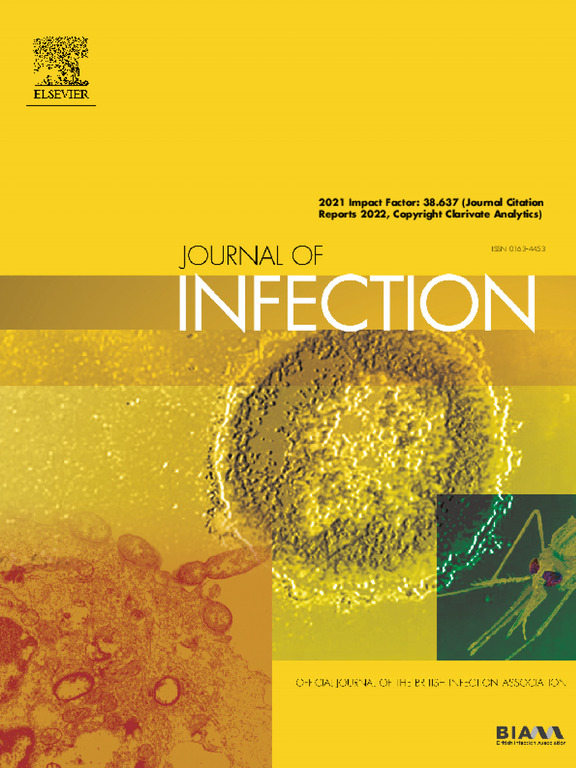N-protein vaccine is effective against COVID-19: Phase 3, randomized, double-blind, placebo-controlled clinical trial
IF 14.3
1区 医学
Q1 INFECTIOUS DISEASES
引用次数: 0
Abstract
Background
Despite the success of first-generation COVID-19 vaccines targeting the spike (S) protein, emerging SARS-CoV-2 variants have led to immune escape, reducing the efficacy of these vaccines. Additionally, some individuals are unable to mount an effective immune response to S protein-based vaccines. This has created a need for alternative vaccine strategies that are less susceptible to mutations and capable of providing broad and durable protection. This study aimed to evaluate the efficacy and safety of a novel COVID-19 vaccine based on the full-length recombinant nucleocapsid (N) protein of SARS-CoV-2.
Methods
We conducted a prospective, multicenter, randomized, double-blind, placebo-controlled phase 3 clinical trial (NCT05726084) in Russia. Participants (n = 5229) were adults aged 18 years and older, with a BMI of 18.5–30 kg/m², and without significant clinical abnormalities. They were randomized in a 2:1 ratio to receive a single intramuscular dose of either the N protein-based vaccine (50 µg) or placebo. Randomization was done through block randomization, and masking was ensured by providing visually identical formulations of vaccine and placebo. The primary outcome was the incidence of symptomatic COVID-19 confirmed by PCR more than 15 days after vaccination within a 180-day observation period, analyzed on an intention-to-treat basis.
Findings
Between May 18, 2023, and August 9, 2023, 5229 participants were randomized, with 3486 receiving the vaccine and 1743 receiving the placebo. Eight cases of PCR-confirmed symptomatic COVID-19 occurred in the vaccine group (0.23%) compared to 27 cases in the placebo group (1.55%), yielding a vaccine efficacy of 85.2% (95% CI: 67.4–93.3; p < 0.0001). Adverse events were mostly mild and included local injection site reactions. There were no vaccine-related serious adverse events.
Interpretation
The N protein-based COVID-19 vaccine demonstrated significant efficacy and a favorable safety profile, suggesting it could be a valuable addition to the global vaccination effort, particularly in addressing immune escape variants and offering an alternative for those unable to respond to S protein-based vaccines. These results support the continued development and potential deployment of N protein-based vaccines in the ongoing fight against COVID-19.
N蛋白疫苗对COVID-19有效:3期随机、双盲、安慰剂对照临床试验。
背景:尽管针对尖峰(S)蛋白的第一代 COVID-19 疫苗取得了成功,但新出现的 SARS-CoV-2 变种导致了免疫逃逸,降低了这些疫苗的效力。此外,有些人无法对基于 S 蛋白的疫苗产生有效的免疫反应。因此,我们需要不易受变异影响、能提供广泛持久保护的替代疫苗策略。本研究旨在评估基于 SARS-CoV-2 全长重组核壳(N)蛋白的新型 COVID-19 疫苗的有效性和安全性:我们在俄罗斯进行了一项前瞻性、多中心、随机、双盲、安慰剂对照的 3 期临床试验(NCT05726084)。参与者(5229 人)均为 18 岁及以上的成年人,体重指数在 18.5-30kg/m² 之间,无明显临床异常。他们按 2:1 的比例被随机分配接受单剂量肌肉注射 N 蛋白疫苗(50 微克)或安慰剂。随机分配采用区组随机法,并通过提供视觉上完全相同的疫苗和安慰剂配方来确保掩蔽。主要结果是在180天的观察期内,接种疫苗后15天以上经PCR确诊的无症状COVID-19的发生率:2023年5月18日至2023年8月9日期间,5229名参与者被随机分组,其中3486人接种疫苗,1743人接种安慰剂。疫苗组出现了8例经PCR确诊的无症状COVID-19(0.23%),而安慰剂组出现了27例(1.55%),疫苗有效率为85.2%(95% CI:67.4-93.3;p解释:基于N蛋白的COVID-19疫苗表现出显著的有效性和良好的安全性,这表明它可以成为全球疫苗接种工作的重要补充,特别是在应对免疫逃逸变异和为那些无法对基于S蛋白的疫苗产生反应的人提供替代疫苗方面。这些结果支持继续开发和潜在使用基于 N 蛋白的疫苗来对抗 COVID-19。
本文章由计算机程序翻译,如有差异,请以英文原文为准。
求助全文
约1分钟内获得全文
求助全文
来源期刊

Journal of Infection
医学-传染病学
CiteScore
45.90
自引率
3.20%
发文量
475
审稿时长
16 days
期刊介绍:
The Journal of Infection publishes original papers on all aspects of infection - clinical, microbiological and epidemiological. The Journal seeks to bring together knowledge from all specialties involved in infection research and clinical practice, and present the best work in the ever-changing field of infection.
Each issue brings you Editorials that describe current or controversial topics of interest, high quality Reviews to keep you in touch with the latest developments in specific fields of interest, an Epidemiology section reporting studies in the hospital and the general community, and a lively correspondence section.
 求助内容:
求助内容: 应助结果提醒方式:
应助结果提醒方式:


